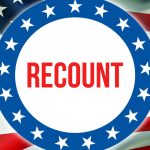It is typical for consumers to purchase more food items than they need and then throw them away because they either forgot about it or the food expired. It is estimated that 1.3 billion tons of food items are wasted yearly, an approximate $1 trillion loss.
Recelery, a pantry tracker app and online marketplace, aims to reduce food waste with an array of features. Users can log their recent food purchases, manage grocery lists, see “virtual pantries” from other users in their area, as well as sell unused grocery items to their neighbors. Users can also invite friends and family to share what food is in their virtual pantry.
The startup hopes its app helps consumers keep track of when food in their kitchen/pantry expires and discover what food they can buy from neighbors in between grocery trips. Plus, during high inflation, the marketplace tool will potentially give everyday consumers a way to earn money on recently purchased food that would otherwise be uneaten and in the trash.
Recelery’s public marketplace allows anyone within one mile from your location to sell and buy unused grocery store items. When uploading an item on the app, sellers can note when the food item expires, where it was originally purchased from, pickup location, and how much they’re selling it for.
Over the weekend, Recelery relaunched its app with updates to its marketplace feature, such as expanding the limit of pictures that users can post, new markers to show the specific date for when an item was added, and users can now sell up to 25 items at a time.
Before the relaunch, sellers could only upload one picture of the food item, and it wasn’t clear to buyers when a food item was first uploaded for sale. Now, sellers can add as many images as they want, and buyers can see how long the food item has been available. Also, with the update, completed sales are removed from the marketplace.
As of now, Recelery doesn’t take a fee from the transaction, so the seller gets 100% of the sale.
Also, this may be obvious to some, but Recelery users are not allowed to sell homemade food products, already opened items, rotten food, or food items past their expiration date. Users are also not allowed to sell party trays of perishable food, baby food and baby formula.
Founder Daniel Abrams recommends that users use “reasonable judgment” when buying from people they just met online. “You have the right to request pictures and connect with the seller via text message before you complete the transaction,” Abrams told TechCrunch.
Recelery is free to use and available to download internationally on the App Store and the Google Play Store.
There’s also a subscription option where users can spend $2.99 per month or $16.99 per year. With the subscription, users can add over 60 items to their pantry, 60+ items to their grocery list, more than 25 items to the marketplace, and access an unlimited number of pantries made by other community members.
Recelery launched in June 2021 and was entirely self-funded by Abrams, who came up with the idea five years ago when he was a law student living by himself for the first time.
“I realized I was throwing away so much produce and went to see if there was anything where I could resell food or find out what food my neighbors had,” Abrams said. However, Abrams couldn’t find an app that met his exact needs. So, he decided to create one.
The company claimed Recelery is the “first app of its kind.” On average, the app has over 1,000 monthly users.
‘Grocery sharing’ app Recelery lets users resell food items to help minimize waste by Lauren Forristal originally published on TechCrunch






